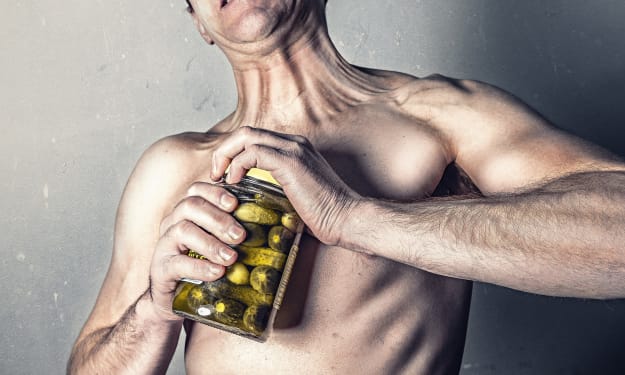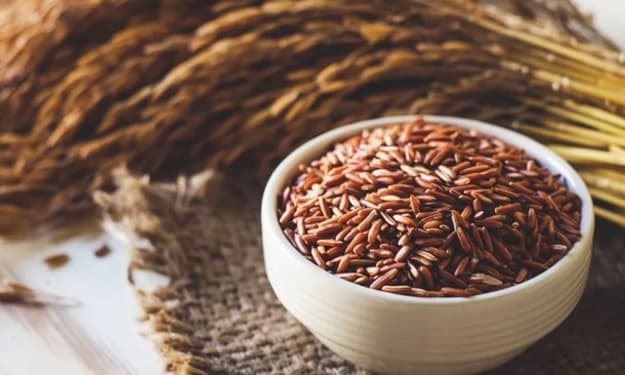How to Gain Weight Healthily If You're Underweight
In the United States, weight loss is a significant problem.

Consumers are regularly exposed to commercials and news stories about fad diets, eye-catching goods, and weight-loss miracle medicines.
Being too thin may seem like a wonderful issue to have given that the continuing "war of the bulge" is front and center for so many individuals. In actuality, though, being underweight may lead to health issues.
Way to better wellbeing
It's a common misconception that being fat makes one overweight or obese. But not all fats are harmful. In actuality, it's advantageous to break down and store energy (calories) as fat. The body utilizes food in a variety of ways to operate, heal, and develop.
You may complete a demanding task or exercise with the support of stored energy from fat. It is essential for brain growth as well as for reducing inflammation (swelling) and blood clotting. Additionally, fat supports healthy skin and hair.
A Body Mass Index (BMI) calculator may be used to detect whether you are underweight. To get a score, this online calculator takes into account your weight, height, age, and gender. You are underweight if your BMI is under 18.5. Your height, weight, diet, and level of exercise may all be used by your doctor to establish if you are underweight.
If you are underweight, your doctor could have you start a weight-gain program. This does not, however, give you license to binge on junk food. Like a weight reduction program, a healthy weight gain demands a balanced strategy.
Taking in junk food may make you acquire weight. But it won't provide your body with the vitamins it needs. Junk food's fat, sugar, and salt content may still damage your health even if it doesn't cause you to gain weight. The following advice may help you gain weight in a healthy way:
Add some wholesome calories. You don't have to make significant dietary changes. By adding cheese, nut or seed toppings, and wholesome side dishes, you may up the calorie count. Try whole-wheat bread, fruit, nuts, sunflower seeds, or other snacks.
Think nutrient-dense. Consume meals high in nutrients instead of empty calories and junk food. Take into account high-protein meats, which may aid in muscle growth. Additionally, choose healthy carbs like brown rice and other whole grains. Even if you have a decreased appetite, this makes sure your body is getting the most nutrition possible.
Munch away. Snack on foods that are high in protein and nutritious carbs. Trail mix, protein bars, beverages, and crackers with hummus or peanut butter are a few things to think about. Snacks with "good fats," which are crucial for a healthy heart, are also enjoyable. Avocados and nuts are two examples.
Take little meals. Eating a lot of food may not appeal to you if you're having trouble becoming hungry because of a physical condition or mental problems. To consume more calories during the day, think about eating smaller meals more often.
Increase your size. Strength training may aid, however excessive cardiovascular activity can burn calories and counteract your weight loss efforts. This includes yoga or weightlifting. By gaining muscle, you gain weight.
Consult your doctor before commencing a weight-gaining program. An underlying health issue might be the cause of being underweight. Changes to your diet won't help. You may monitor your development with the aid of your doctor. He or she will watch to see if positive improvements are occurring.
Things to think about
Typically, underweight individuals do not consume enough calories to maintain their weight. They often also have nutritional deficiencies. Malnutrition occurs when a person does not get enough vitamins and minerals from their diet. You may be at risk for the following health problems if you are underweight:
delayed development and growth. This is particularly true for kids and teenagers, whose bodies need a lot of nutrients to develop and maintain health.
brittle bones Weak bones and osteoporosis may result from calcium and vitamin D deficiencies, low body weight, and other factors.
compromised immune system Your body cannot store energy if you don't receive adequate nutrition. This makes battling disease challenging. Your immune system may find it challenging to recuperate after being ill.
Anemia. Lack of iron, folate, or vitamin B12 may be the root cause of this illness. Dizziness, weariness, and headaches may result from this.
fertility problems Low body weight in women may result in infertility, irregular periods, and no periods at all.
hair fall Hair may become brittle and fall out quickly when a person is underweight. Additionally, it may result in thin, dry skin and gum and tooth problems.
Many individuals who are underweight have good physical health. Several factors may contribute to low body weight, including:
Genetics. If you've been slim since high school and it runs in your family, you probably had a faster metabolism at birth. You can also be naturally undereating.
high levels of exercise. If you're an athlete, you undoubtedly already know how your body weight might be impacted by regular exercise. High levels of physical activity may, however, also be a sign of a dynamic personality or an active work. You may burn more calories if you move around a lot than if you sit more (inactive).
Illness. Your hunger and your body's capacity to use and store food may both be impacted by illness. You may have an illness if you just lost a lot of weight without trying, such as thyroid issues, diabetes, digestive disorders, or even cancer. Consult your doctor about any unexpected weight loss.
Medicines. Weight loss and nausea are two side effects of several prescription medications. Some medical procedures, including chemotherapy, might decrease appetite and make weight loss due to sickness worse.
psychiatric problems All aspects of our life are impacted by our mental health. Healthy eating habits might be hampered by conditions like stress and sadness. Eating disorders may result from severe body image anxieties and distortions. Consult your doctor if you experience emotionally harmful concerns. He or she can assist you in obtaining whatever treatment, support, or counseling you may need.
About the Creator
Enjoyed the story? Support the Creator.
Subscribe for free to receive all their stories in your feed. You could also pledge your support or give them a one-off tip, letting them know you appreciate their work.






Comments
There are no comments for this story
Be the first to respond and start the conversation.